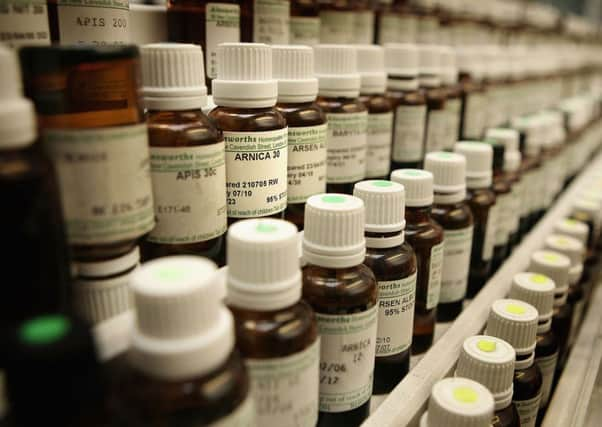Prescribing the best medicine for patients


I read with interest recent mainstream media reports suggesting that an army of pharmacists would be descending upon GP surgeries to solve the current recruitment difficulties our medical colleagues are facing.
While I welcome the pharmacy profession being portrayed in a positive light, I remain to be convinced the answer lies with replacing some GP colleagues with pharmacist employees.
Advertisement
Hide AdAdvertisement
Hide AdGreater collaboration between community pharmacies and GP surgeries can deliver better care for those accessing the NHS and also deliver efficiencies for those charged with delivering services.
Primary care in the NHS is built on the foundations of the contractor model. This covers pharmacy, general practice, dentistry and optometry. Most of us will find that we access pharmacy services the most, followed by the GP. Almost everyone will be familiar with attending a doctor appointment, having a treatment prescribed, followed by going to a pharmacy to have the item supplied. These two settings are where the majority of patients get professional support and advice.
Many out with the professions will find it surprising to learn that the infrastructure facilitating joint working between community pharmacy and general practice is often very limited. We need to enable closer working relationships between the professions through electronic communication channels. Streamlining referral of patients between both services would also aid care. Oddly, it is often easier for a pharmacy to refer a patient to the out of hours service than into general practice.
Health boards should also provide leadership to facilitate both pharmacists and doctors to engage with each other. This could be attending joint meetings or hosting clinics in the others premise. Community pharmacy practice has developed greatly over the past 15 years. I expect that to continue especially in light of the Scottish Government’s pharmacy vision, Prescription for Excellence.
At CPS we have debated thoroughly community pharmacies future direction. We strongly believe that pharmacists cannot be expected to fulfil the role of a general practitioner. Just as it would not be appropriate for a doctor to take over the role of a pharmacist. Both professions require lengthy periods of undergraduate and postgraduate training. The skills developed are very different. Pharmacists are the experts in medicines while doctors remain the experts in diagnosis. The skills, although very different, are certainly complementary to patient care.
Despite synergy between the roles, I have reservations about pharmacists in the employment of either health boards or the GP surgeries themselves being the norm in medical surgeries across Scotland. In areas which have used this approach I have had feedback from pharmacists that the relationship between the surgeries and the community pharmacy has been diluted. This is mainly because the surgery will now seek advice from the practice-based pharmacist. As the patients ultimately rely on the GP and community pharmacist, anything that weakens the relationship between the two professionals is unlikely to benefit patient care. I remember earlier in my career. GP colleagues being regular visitors to my community pharmacy to discuss patients and seek advice. Sadly I doubt this is the norm in a number of areas across Scotland.
Supporting a greater working relationship between the two professions should be a priority for health boards, government and organisations like CPS. Facilitating a community pharmacist to provide GP support will almost certainly be more cost efficient for the NHS than recruiting large numbers of staff. Undoubtable NHS services are under more pressure than ever before as the Scottish population ages. More people are living longer, healthier lives often with long term conditions. This of course should be celebrated but we must also be innovative to keep the NHS fit for purpose.
However, when it comes to GP and pharmacist working relationships we can perhaps learn from the past. I hope Prescription for Excellence can bring us back to a situation where the community pharmacist and the GP are regulars in each other’s workplace.
• Harry McQuillan is chief executive of Community Pharmacy Scotland www.communitypharmacyscotland.org.uk